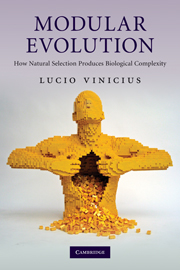Book contents
- Frontmatter
- Contents
- Preface
- 1 From natural selection to the history of nature
- 2 From the units of inheritance to the origin of species
- 3 Multicellularity and the developmental code
- 4 Life cycle evolution: life and death of the soma
- 5 Sex and its consequences: the transition that never happened
- 6 Animal societies: the case of incomplete evolutionary transitions
- 7 The new ‘Chain of Being’: hierarchical evolution and biological complexity
- References
- Index
5 - Sex and its consequences: the transition that never happened
Published online by Cambridge University Press: 05 June 2012
- Frontmatter
- Contents
- Preface
- 1 From natural selection to the history of nature
- 2 From the units of inheritance to the origin of species
- 3 Multicellularity and the developmental code
- 4 Life cycle evolution: life and death of the soma
- 5 Sex and its consequences: the transition that never happened
- 6 Animal societies: the case of incomplete evolutionary transitions
- 7 The new ‘Chain of Being’: hierarchical evolution and biological complexity
- References
- Index
Summary
Sex has been a key player in the unfolding of evolutionary history. The most diverse and successful taxa are sexual (among bacteria and eukaryotes, single-celled and multicellular, animals, plants and fungi). In some species sex even gives the impression of being more important than survival, as exemplified by males that sacrifice their lives to females as payment for mating (Prenter et al., 2006), or mothers that feed their descendants with their own flesh (Hamilton, 1967). The exceptional status of sex in evolutionary theory has been formalised in two particular ways. First, the concept of a ‘paradox’ or ‘cost’ of sex (Maynard Smith, 1971) points to the fact that sex seems to be too complicated and risky in comparison with the simpler mechanism of asexual reproduction; but the fact that sexual species are much more common than asexual ones implies that sex must offer some exceptional adaptive advantage. Second, sex has been elevated to the status of a major transition in evolution by Maynard Smith and Szathmáry due to its significance to organic history. They argue that sex involved the origin of meiotic or reductional division, recombination of parental genes, the need for gametes that transfer hereditary information across generations and other innovations, which together would represent the origin of a new method of transmission of biological information.
The high status of sex as a microevolutionary paradox and a macroevolutionary transition certainly seems to be justified, but at closer examination some problems can be seen with both arguments.
- Type
- Chapter
- Information
- Modular EvolutionHow Natural Selection Produces Biological Complexity, pp. 128 - 153Publisher: Cambridge University PressPrint publication year: 2010



